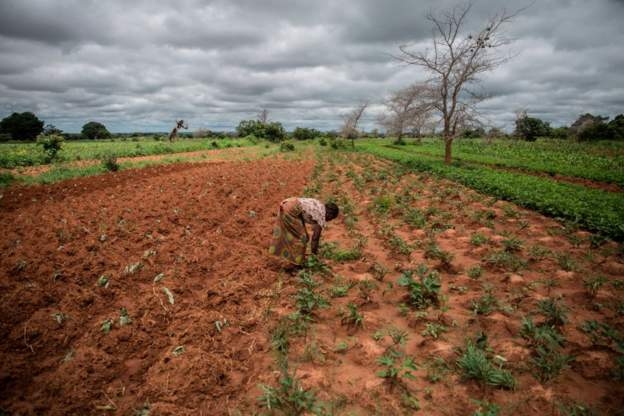Zambia declares national emergency over drought
 Zambia has been experiencing poor rain, with fears mounting that the country may experience hunger
Zambia has been experiencing poor rain, with fears mounting that the country may experience hunger
Zambia’s President Hakainde Hichilema has declared a national disaster to tackle the prolonged drought affecting the country.
Addressing the nation on Thursday afternoon, Mr Hichilema said 84 districts out of a total of 116 were affected.
Zambia has been experiencing poor rain, with fears mounting that the country may experience hunger and struggle to meet its electricity demands as most of its energy is from water sources.
Water levels at Kariba Dam - which Zambia and n/eighbouring Zimbabwe use for hydroelectricity - had fallen to about 11.5% of usable storage as of last December.
The president said the drought would affect the generation of more than 450 megawatts of power.
He said almost half of the land used for planting crops had been affected by the dry spell.
Mr Hichilema said his government would work to ensure that additional maize and other food was brought into the country to make up the deficit.
He said he would use Zambia's defence forces “in this fight to save our lives and save families and create a longer term solution to drought".
“We will work together to get together farmers to plant more crops. We shall also enhance the social support programmes for the farmers that have been affected by the drought,” he said.
“We call upon all our local and international partners to avail any excess food on hand to provide relief. Some partners have already extended their commitment to offer their support, such as the British, the UN system, the World Bank Group and others."
He called on farmers to use irrigation methods to cope with the dry spell. An estimated one million farmers have been affected by the drought.
Mr Hichilema said his government would work with different stakeholders, opposition politicians and the church to tackle the situation.
Social media has been awash with videos and pictures of fields with dying crops.
Source: BBC
Trending World

UK's highest court rules that the law defines a woman as someone born biologically female
16:38
Death every 3 minutes: Why India's roads are among the world's deadliest
01:41
Vatican announces death of Pope Francis aged 88
15:41
Who will be the next pope? Key candidates in an unpredictable process
13:45
Pope Francis funeral sets for Saturday
05:08




